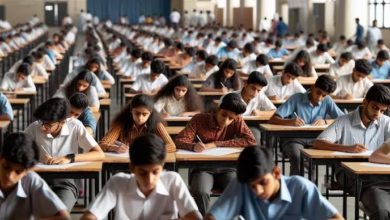Maharashtra Makes Hindi Compulsory from Class 1 to Class 5 Under NEP 2020 Implementation
Hindi Now Compulsory in Classes 1-5 Throughout Maharashtra as NEP 2020 Takes Hold

Maharashtra makes Hindi compulsory as a third language in Marathi and English-medium schools in classes 1 to 5, starting from Grade 1 in the new academic year, as part of NEP 2020 curriculum changes.
Mumbai | April 17, 2025 — In a significant step towards the implementation of the National Education Policy (NEP) 2020, the Maharashtra School Education Department has introduced Hindi as a mandatory third language in all Marathi and English-medium schools from classes 1 to 5. The move is a significant change in the language curriculum for early education in the state.
Up till now, the students in class 1 to class 4 used to learn just two languages — Marathi and English. But with the introduction of the new curriculum framework, a Government Resolution (GR) released on Wednesday, April 16, describes the graded implementation of Hindi as a compulsory language, starting from Grade 1 in the next academic year.
The GR makes it clear that this reform is part of a larger plan to implement the three-language formula already being followed in many other categories of schools in Maharashtra. Both English-medium and Marathi-medium schools will now follow this multilingual strategy, with Hindi added from the early years of schooling.
The new framework also brings in the NEP’s 5+3+3+4 school system — splitting education into four main stages: Foundational (3 years of pre-primary + Grades 1–2), Preparatory (Grades 3–5), Middle (Grades 6–8), and Secondary (Grades 9–12). The new system is meant to encourage overall development and a versatile, multidisciplinary education system.

In addition, the revised state curriculum will be based on the National Council of Educational Research and Training (NCERT) guidelines, but incorporating local perspective, particularly in disciplines such as History, Geography, and regional languages.
As per the School Education Department, this shift in the education system lies at the base of the five pillars of the NEP: inclusiveness, equity, quality, affordability, and accountability — ideals that the government believes will define a more solid scholarly foundation from early childhood to higher education.
With this development, Maharashtra joins the growing list of states actively implementing NEP 2020 reforms, emphasizing linguistic diversity and preparing students for a more interconnected and inclusive future.






